24 October 2023, Kobe, Hyogo – APN, in collaboration with the Hyogo Prefectural Government and IGES, held the “SDGs International Forum for Biodiversity” as the Hyogo Activity. The Forum was held at Lasse Hall in Kobe and online, with simultaneous Japanese and English interpretation, where approximately 400 people attended from Japan and abroad (approximately 110 participants in person and approximately 290 participants online).
In December 2022, a new global biodiversity goal, the “Kunming-Montreal Biodiversity Framework,” was adopted. The present Forum aimed to share the latest developments in domestic and international efforts toward achieving Nature-Positive (nature restoration). Additionally, by recognising biodiversity as a regional issue, the Forum exchanged advanced initiatives and insights, where residents and business operators considered the implementation of SDGs in the region (local SDGs).
In his opening remarks, Mr Motohiko Saito, Governor of Hyogo Prefecture, explained that the Cabinet Office selected Hyogo Prefecture as the “SDGs Future City” and “Local Government SDGs Model Project” in May 2023. Governor Saito unveiled the “Hyogo Field Pavilion,” a core program designed to implement these initiatives and enhance the regional value of Hyogo Prefecture ahead of the 2025 Osaka-Kansai Expo. Additionally, Governor Saito introduced efforts centering around the Tajima region, focusing on reintroducing wild storks and expanding environment-creative agriculture, and initiatives such as restoring a rich and beautiful coastal sea in the Seto Inland Sea region. Furthermore, Governor Saito emphasised that being referred to as a microcosm of Japan and having walked alongside diverse natural environments, Hyogo Prefecture can leverage its presence as a leading region in biodiversity.
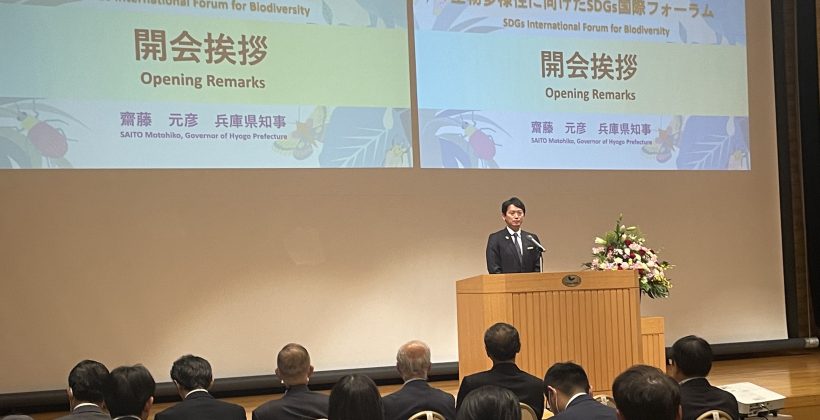
In the first part of the forum, Prof. Kazuhiko Takeuchi, President of IGES, gave a keynote speech titled “Pathways to Achieving Nature Positive by 2030.” Prof. Takeuchi introduced that the global effort is focused on attaining “Nature-Positive,” aiming to halt the decline of nature by 2023 and set it on a path of recovery. Additionally, Prof. Takeuchi stated that the participation of various entities, including not only the government but also private enterprises, civic organisations and citizens, is essential for the realisation of Nature-Positive approaches, including the adoption of new global goals, such as the “30 by 30 Target,” which aims to conserve 30% or more of land and sea by 2030.
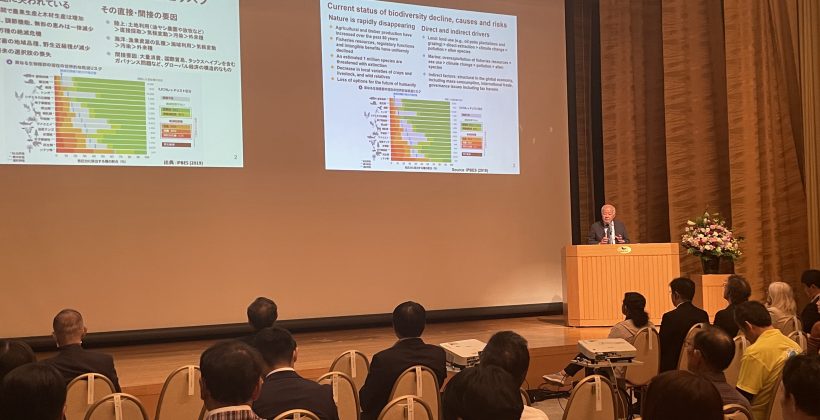
Subsequently, Governor Saito, Mr Ryugo Watanabe (Mayor of Sado City, Niigata Prefecture) and Prof. Takeuchi discussed the theme “Biodiversity Promoted Through Local Initiatives and SDGs.” During the discussion, Governor Saito and Mayor Watanabe introduced initiatives common to Hyogo Prefecture and Sado City, such as environment-creative agriculture, which contributes to the reintroduction of storks and ibises. This was followed by an exchange of opinions on biodiversity and the development of sustainable local economies and societies. Furthermore, Prof. Takeuchi appraised the initiatives of both municipalities in integrating biodiversity with agriculture, culture and other aspects.
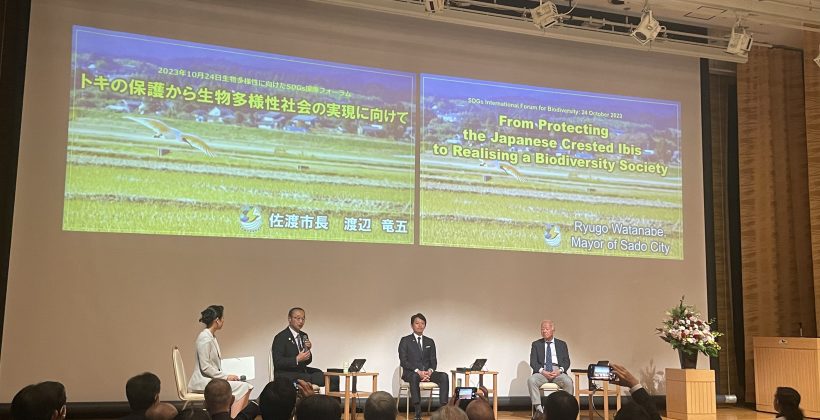
In the second part of the Forum, Dr. Suneetha Subramanian, Research Fellow, Institute for the Advanced Study of Sustainability, United Nations University, gave a presentation titled “Not in Isolation: Achieving Biodiversity Conservation is a Lever to Achieving Other SDGs.” Dr Subramanian stated that preserving biodiversity is our “life insurance for our way of life” and that biodiversity is an environmental concern and impacts our well-being. Additionally, Dr. Subramanian emphasised that “coexistence with nature” should not only be a catchphrase but a motto we should adopt.
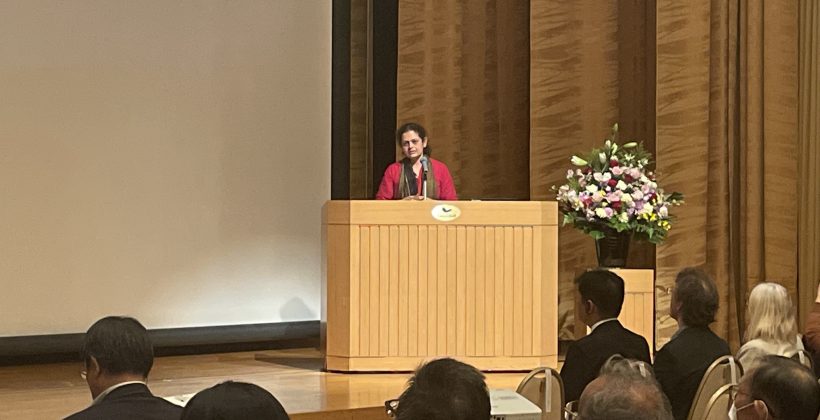
Lastly, Mr Ryuji Tomisaka, Director of the APN Secretariat, made the closing remarks by indicating that biodiversity affects its conservation and extends its impact across a wide range of areas, including adaptation to climate change, bio-circular green economy and human well-being. Additionally, Mr Tomisaka hoped that the participants would gain ideas and insights, inspired by the advanced initiatives and knowledge presented today, in their efforts towards biodiversity and to contribute to the realisation of local SDGs in the region.
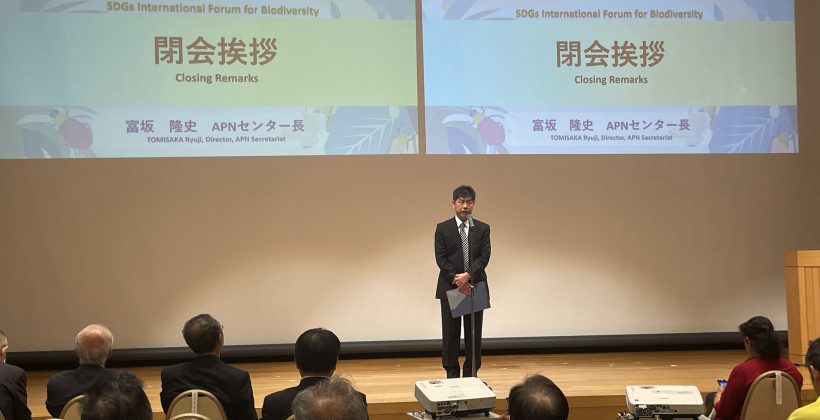
Most participants found the Forum valuable, with 87% rating it as “excellent” or “good” in a post-event survey. Additionally, participants commented, “The initiatives in Hyogo and Sado are indeed efforts towards realising “Nature-Positive,” resonating not only with the environment but also with regional economic activities.” The participants also shared that “the perspective on biodiversity became clear on a global scale” and “ learned about the importance of biodiversity and the significance of cultural perspectives.”
APN will continue to deepen the understanding of environmental issues with the residents of Hyogo Prefecture by collaborating with the Hyogo Prefectural Government, research institutions and other institutions concerned.
To see the programme of the event, please click this link.


